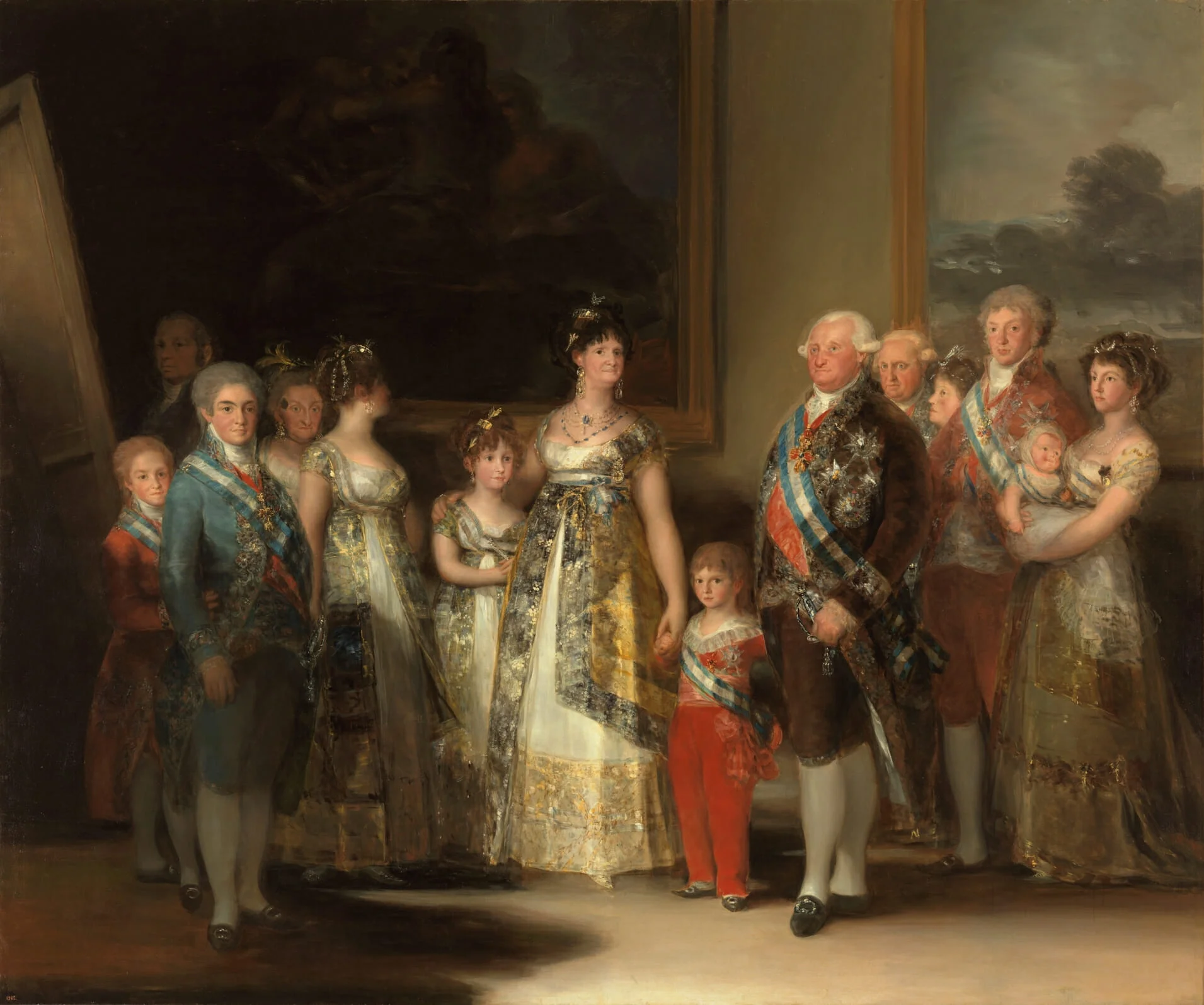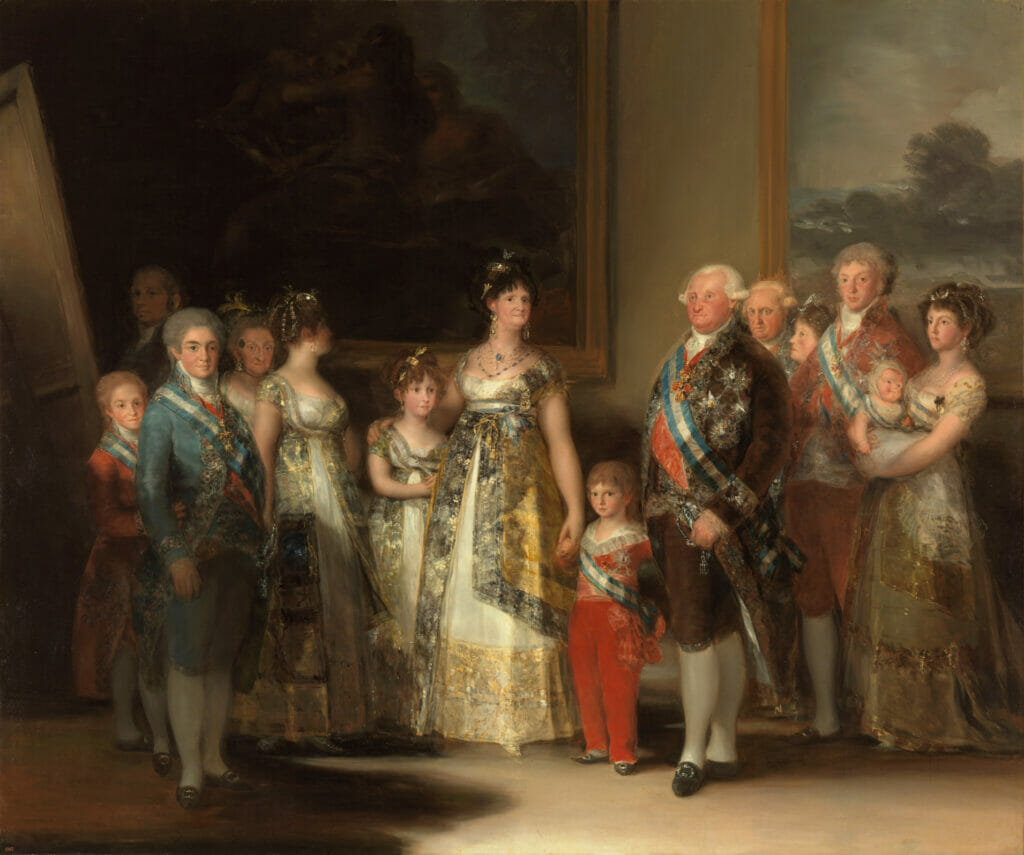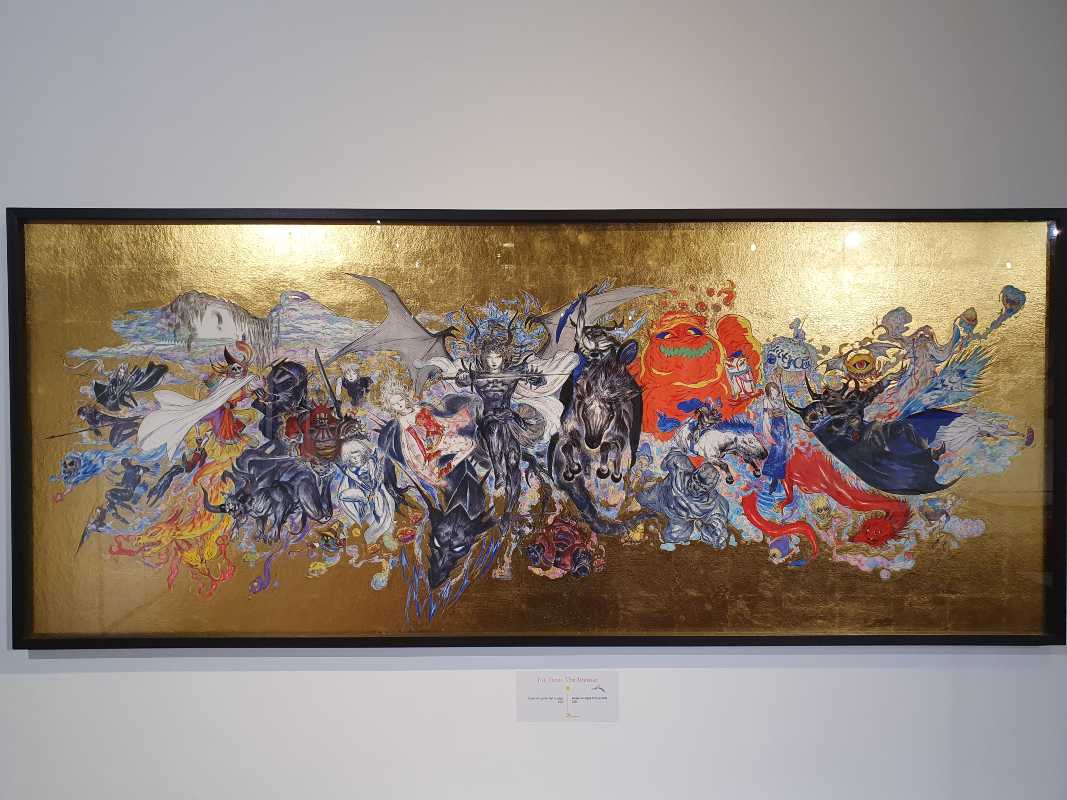
Charles IV of Spain and His Family hides a rulers caricature
Artist
Year
Country
Format
Material/Technique
One can expect anything from a court portrait painter, except for a caricature inside an official painting. And yet this is exactly what Francisco Goya, Pintor de Cámera of the king achieved under the reign of Carlo IV, beginning in 1789.
In Charles IV of Spain and His Family Goya depicts the entire royal family, distancing himself however from the classic prototype of court paintings that tended to give their subjects a certain aura of beauty and dignity where, at times, it was completely absent. The painter does not force himself to beautify, but rather leans in the opposite direction, turning faces into caricatures, adding grotesque connotations and monkey-like features.
A satirical gaze
He covers the characters with medals and drapes them in sumptuous garments in the same spirit, revealing all the superficiality of which this court was guilty. The only ones safe from Goya’s satirical brush are the children, whom Goya portrayed faithfully. In fact, he considered them innocent and still uncorrupted by the world and by the royal label.
Going beyond the satirical gaze that Goya turned on the family of Carlo IV, one can notice how his work of bitter revision involved the painting itself. The portrait is the caricature of another masterpiece realized a century and a half earlier for the Spanish court. Continuing his prank, Goya doesn’t hide his homage to Las Meninas by Diego Velazquez. Confirming it is the self-portrait of the painter himself in the act of painting, with the detail of the canvas seen from behind, just like in the piece by Velazquez.
An occasionally true story
Presented with these grotesque portraits, it’s surprising how Goya’s clients didn’t object: a rare case in which the rulers themselves accepted political satire. This is because the opulent, ostentatious clothes and shiny medals depicted in the painting attracted the royals, confirming the obtuseness Goya had seen in them.
If Charles IV of Spain and His Family were a fable, it would be, without a doubt, The Emperor’s New Clothes. This is the story of a king so vain that he doesn’t realize he’s been made the butt of a terrible joke by two trickster tailors. A current-day correspondence to this painting could be the TV show The Great (whose tagline is “an occasionally true story”). This show reimagines the story of Catherine the Great through paradoxical and harsh parody.

Tag
Buy a ☕ for Hypercritic








